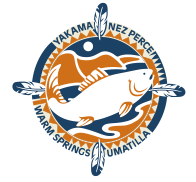Portland, Oregon – Tribal and state fisheries managers in the Columbia Basin may gain a new tool to address sea lion predation below Bonneville Dam with Saturday’s introduction of the Endangered Salmon and Fisheries Predation Prevention Act. Introduced by representatives Jaime Herrera Beutler (R-WA) and Kurt Schrader (D-OR), the legislation would clear up inefficiencies and red-tape to allow more effective management of alarming predation levels by California sea lions on Columbia River spring chinook and other species. Tribal leaders have consistently supported the efforts of the Northwest Congressional delegation to amend Section 120 of the Marine Mammal Protection Act for greater clarity and efficiency. Tribal leaders are particularly supportive of a key provision in the bill that would provide the Warm Springs, Umatilla, Yakama, and Nez Perce tribes with access to the same authorities currently available only to states.
“Our tribes are working hard to restore ecological balance to a highly altered and degraded river system. The Marine Mammal Protection Act and the Endangered Species Act are thoughtful laws, however they need to be reconciled with one another,” explained Leland Bill, chairman of the Columbia River Inter-Tribal Fish Commission. “The Endangered Salmon and Fisheries Predation Prevention Act honors the underlying intent of both laws while providing professional fisheries managers with tools to manage both protected and endangered species.”
The legislation, which has immediate bipartisan support, would allow both states and tribes to remove a limited number of predatory sea lions. The legislation would allow for active management of the growing Columbia River sea lion population and removes the burdensome requirement of identifying individual sea lions. According to the National Marine Fisheries Service (NMFS) five-year review, sea lion management actions are needed in the lower Columbia. The Service stated, “…the information available since the last status review clearly indicates that predation by pinnipeds on listed stocks of Columbia River Basin salmon and steelhead, as well as eulachon, has increased at an unprecedented rate. So while there are management efforts to reduce pinniped predation in the vicinity of Bonneville Dam, this management effort is insufficient to reduce the severity of the threat, especially pinniped predation in the Columbia River estuary (river miles 1 to 145) and at Willamette Falls.”
A limited removal program has been in effect since 2011 but the NMFS review concluded that the current program insufficiently addresses the impacts to endangered salmon. Last year, approximately 190 sea lions killed over 9,500 adult spring chinook within sight of Bonneville Dam. This represents a 5.8 percent loss of the 2016 spring chinook run a quarter mile of Bonneville Dam alone. NOAA Fisheries Service also estimates that up to 45 percent of the 2014 spring chinook run was potentially lost to sea lions in the 145 river miles between the estuary and Bonneville Dam.
“The spring chinook loss, coupled with the growing sea lion population, has placed us in an emergency situation,” said Leland Bill. “This legislation would give us the flexibility to address the current sea lion situation so conflicts with at-risk species can be managed.”
Sea lion populations have seen resurgence under the Marine Mammal Protection Act. In 1972 when the Marine Mammal Protection Act was passed, the California sea lion population hovered around 30,000 animals. The population has currently grown to over 300,000.
For more information on sea lion predation at Bonneville Dam visit the CRITFC’s sea lion page https://www.critfc.org/sealion/sealion.html. This website provides links to a fact sheet, video of predation, hazing activity, and photos of damage done to migrating salmon by sea lions.

